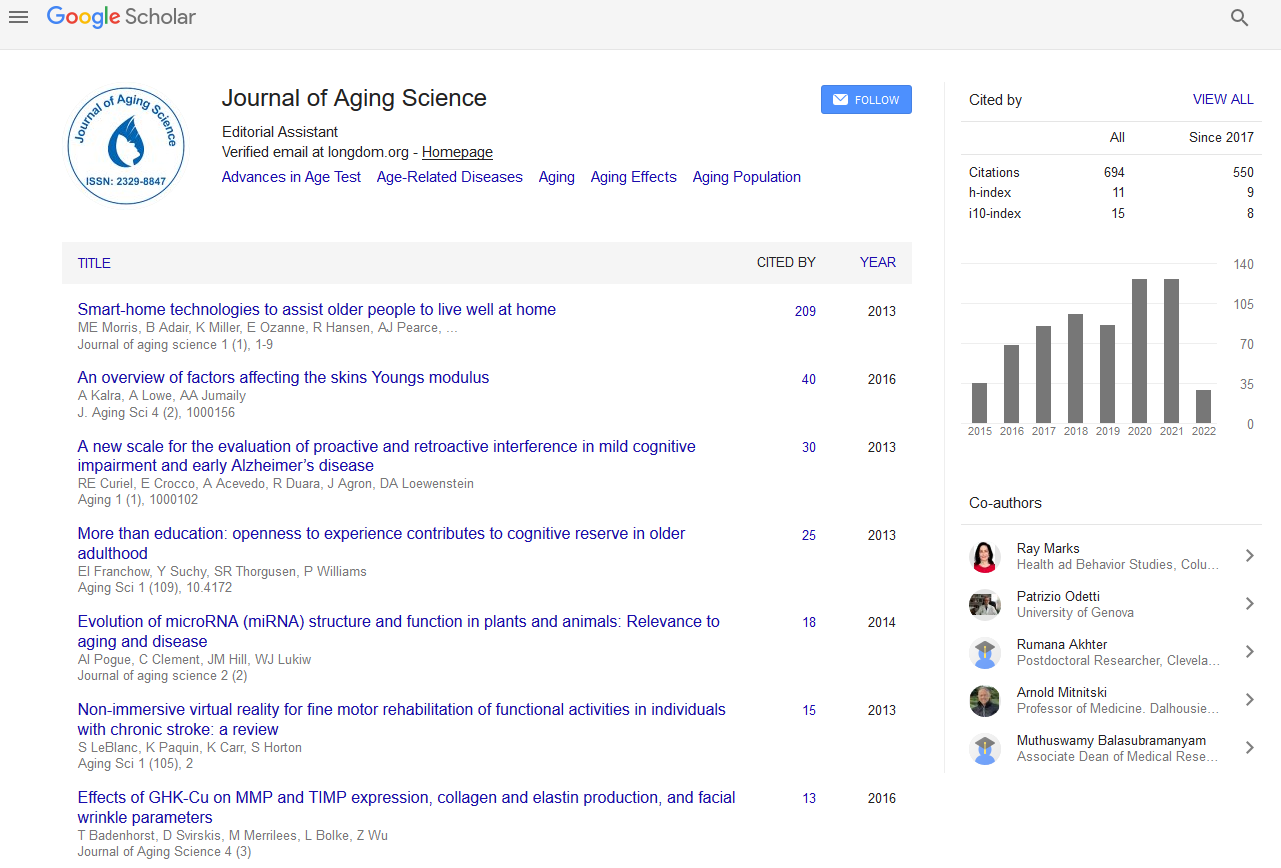PMC/PubMed Indexed Articles
Indexed In
- Open J Gate
- Academic Keys
- JournalTOCs
- ResearchBible
- RefSeek
- Hamdard University
- EBSCO A-Z
- OCLC- WorldCat
- Publons
- Geneva Foundation for Medical Education and Research
- Euro Pub
- Google Scholar
Useful Links
Share This Page
Journal Flyer

Open Access Journals
- Agri and Aquaculture
- Biochemistry
- Bioinformatics & Systems Biology
- Business & Management
- Chemistry
- Clinical Sciences
- Engineering
- Food & Nutrition
- General Science
- Genetics & Molecular Biology
- Immunology & Microbiology
- Medical Sciences
- Neuroscience & Psychology
- Nursing & Health Care
- Pharmaceutical Sciences
Abstract
Social Support, Social and Temporal Comparisons Protect Well-Being and Health between 45 and 70 Years Old in Four Urban Communities
Ingrid Gilles, Alain Clemence, Nelly Courvoisier and Sylvie Sanchez
This study examined the impact of social support and of temporal and social comparisons on well-being and selfreported health in four capital cities: Paris, Berlin, Moscow and Beijing. Based on the lifespan control theory, an integrative model investigating the influence of these coping strategies, especially on the psychological regulation of health losses, was tested on 1141 respondents aged 45 to 70 years by using structural equation modelling with multigroup comparisons. Results indicated a good fit of the model to participants’ responses. In all contexts, physical weaknesses favoured the use of social and temporal comparison strategies rather than social support. Moreover, across the cities, coping strategies were oriented more toward protecting self-evaluation of health than toward enhancement of well-being. Social comparison decreased the impact of physical weaknesses on health evaluation and on well-being in the four cities, but to a lesser extent in China. Results are discussed regarding the normative cross-cultural aspects that intervene during ageing in the four urban contexts.


